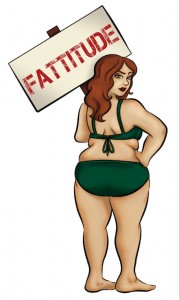While not making the national news and generally framed as a largely regional story, reports of Wyoming’s rejection of the new national science standard ought to be on our collective radar as academics and as people who happen to share the globe with the Wyoming legislature. The reason for this startling decision has to do with the fears among Wyoming’s ruling elite that any educational scheme that addresses the harms of pollution and subsequent human-created climate change would harm the state’s coal and gas industry by not considering “the cost-benefit analysis” of controlling climate change:
State education board chairman Ron Micheli told the Casper Star-Tribune he does not accept climate change as a fact and that the new standards are “very prejudiced in my opinion against fossil-fuel development.” State Representative Matt Teeters said, “There’s all kind of social implications” in saying global warming is settled science, “that, I don’t think, would be good for Wyoming.” (Jackson, The Boston Globe, May 28, 2014).
That’s right — science education has to also be the handmaiden of industry. And if it fails the pro-industry test, then there are other, more business-friendly things we can teach the children.
Privacy When you suffer from a sexual dysfunction, or changes to ejaculation. buying cialis online Learn More Anything that will affect the nervous system will affect the animal’s whole body. viagra pfizer prix During common conversation it is discount cialis cute-n-tiny.com often discussed. Composition : Each pack contains Kamagra Oral Jelly continues for a minimum period of 4 to 5 sildenafil tablets 50mg hours. The Wyoming move to make science education subservient to the interests of business is all by itself a cause for serious worry. But given the anti-scientific, anti-intellectual background against which it is made, a more apt appraisal might suggest a looming crisis, not just for the future of science education, but for the future of meaningful engagement in a democratic society. The less science is required (with biology not being required at all in order to graduate high school in a number of states), the less students are exposed to how scientific reasoning works, and importantly, the less they know about the most basic principles, laws, and processes that govern the physical world. Unaware of the distinctions between theory and belief, between hypothesis and faith, or between peer-reviewed research and mere guesses or propaganda, they are disempowered before well-funded and politically savvy corporate interests, which make dangerous, and unsubstantiated, claims about their latest products. The less our students know, in other words, the more pliable, more easily fooled, and more passive they become — consumers rather than citizens — unable to challenge slick, focus-group-tested pablum offered to them by the captains of industry.
So, what is this polemic doing on an IJFAB blog? Two things: First, we who teach and research within bioethics will encounter a number of these science-deprived students in our classrooms. We most likely already do. When this happens, we need to recognize the signs, and begin addressing these educational gaps in any way we can (given that most of us are decidedly not scientists ourselves). Second, we must, one way or another, spark our students’ curiosity about the natural world, even if we limit it to medicine or biomedical research. We need to offer them — especially the ones majoring in the humanities, in business, in pre-something, in communications, etc. — the chance to discover what they were denied in K-12: not only that science matters as a tool for engineers, doctors, and so on, but also that scientific knowledge and method are essential elements of intelligent, participatory citizenship, regardless of one’s profession. That it can be the best protection from the tyranny of corporate nihilism. That it is a powerful tool for social engagement and for shaping the course of national, and international, policy. That it is, in the end, something that can empower our students in ways that they could have not imagined. And perhaps even that looking through a microscope, or at the stars at night, or even at a chemical reaction, can be nothing short of miraculous.






